The World's Most Luxurious Challah Covers: Liora's Artistic Journey
When Liora Haroni moved to Israel, little did she know she would become a renowned artist creating the world's most luxurious challah covers. Here's her captivating story and how she achieved her dream.
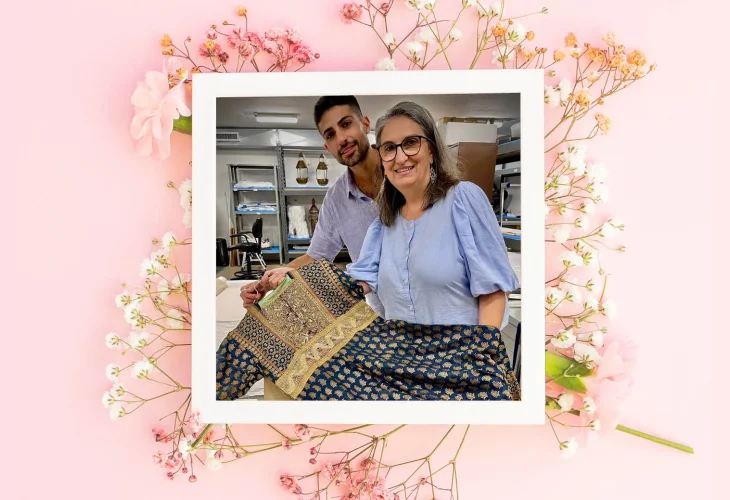
In recent years, there's been a growing awareness of making the Shabbat table more elegant. Many families now have a fancy Kiddush cup, elegant dinnerware, special Shabbat cutlery, and even luxurious cloth napkins. "But what about the challah cover? Why is it often neglected, dirty, and unimpressive?" asks Liora Haroni, an artist deeply involved in Judaica. In recent years, she's launched a special brand of challah covers made from gold and silver threads, considered the world's most expensive.
Liora's story is nothing short of inspiring. Originally from Belgium, she moved to Israel as a young girl, the only one of her family to do so. She studied at top art schools, specializing in various art forms, with a notable focus on mosaics. Over the years, she became a leading teacher, trained many students, and her works are displayed at the President's Residence and other prestigious places.
Liora married in Israel, and within a year, she had a son. "It felt like a great victory," she notes. "My grandmother survived five concentration camps and always dreamed of reaching Israel. Here I am, living the dream, raising a family, and creating art to honor Hashem."
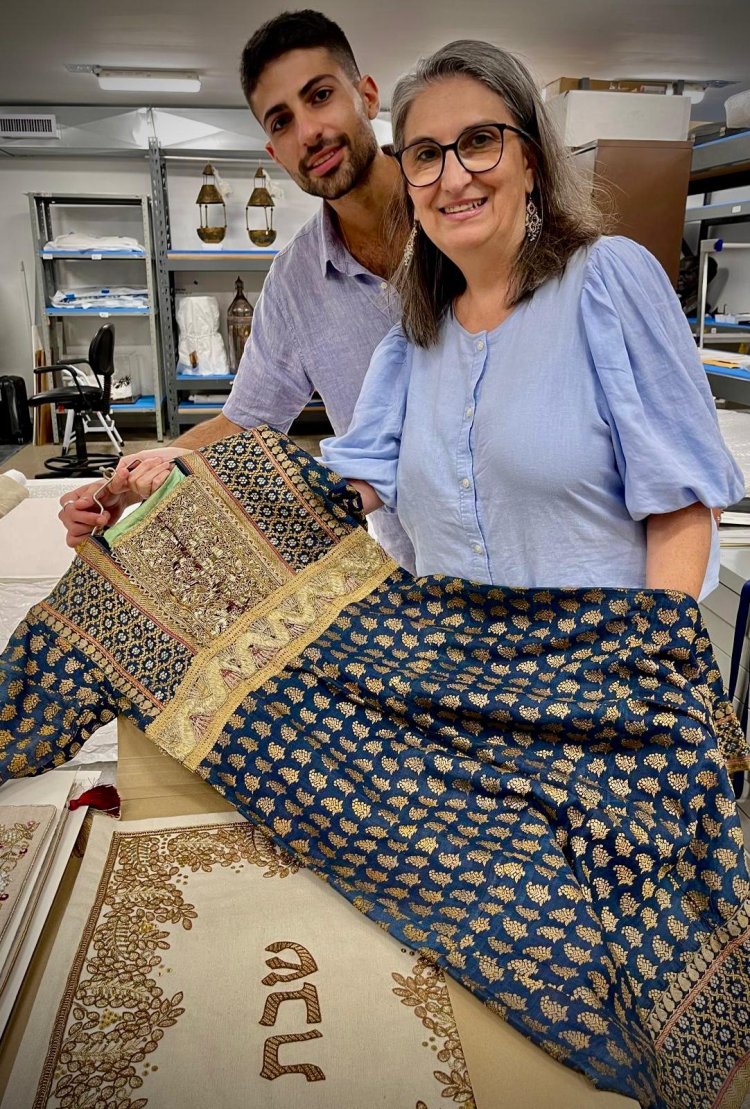
The Most Luxurious
Liora's reputation as a prominent artist grew, and her pieces sold for substantial amounts. However, she wasn't satisfied. "I was constantly searching to create art with meaning," she explains. "I wanted to make something unprecedented, which led me to the decision to create challah covers for the sacred Shabbat. But not just any covers—special artistic ones that adorn the table like luxurious Judaica items, because our Shabbat table deserves a touch of luxury."
She notes that such covers were never seen in the market before, as they are handmade from the most luxurious materials in the world, which she traveled to India specifically to procure.
Why India?
"In India, you can find embroideries made from the most expensive gold and silver threads in the world, sold at top prices and used only by wealthy brides and grooms," she explains. "When I started producing the collection of challah covers, I took on significant debts but didn't cut corners. It was clear to me that I would use the finest materials in the world and work with the best artists, sometimes even spending a hundred hours on a single flower or pomegranate marked on the fabric."
Do you think untrained eyes can tell the difference between these covers and regular ones?
"Absolutely, you can't miss it. It's like comparing the most elegant Kiddush cup to a simple goblet or a hand-designed dress from a famous brand to a simple machine-sewn dress. With us, it's not about ordinary covers but breathtaking ones. By the way, unrelated to these, Indian merchants told me the Pope even buys these fabrics and threads for his garments. There's nothing more luxurious in the world."
Liora personally notes that she connected with the art of the covers from the first moment. "The embroideries gave me a regal feeling," she explains, "and I felt there's nothing more fitting for the Shabbat table—the table of a king. As someone who loves Judaism and Shabbat, I felt this was my opportunity to bring back beauty. After all, when a woman spends hours in the kitchen to prepare Shabbat meals for her family and cleans the house all day, she deserves a luxurious Shabbat table. These covers are like a jewel, adding unique beauty to the table. Every time, I'm thrilled anew when the light of the candles and lamps shines on the threads, and they sparkle, since they aren't made from cotton but from gold and silver."
How much do these luxurious covers cost?
"The cost is very high, as expected," responds Liora. "We're talking thousands of shekels per cover, but since some can't afford such amounts, we've also created a collection with more affordable embroideries costing 280 shekels per cover. It's not exactly the same feeling, but it makes the product accessible to those who can't pay the high prices."
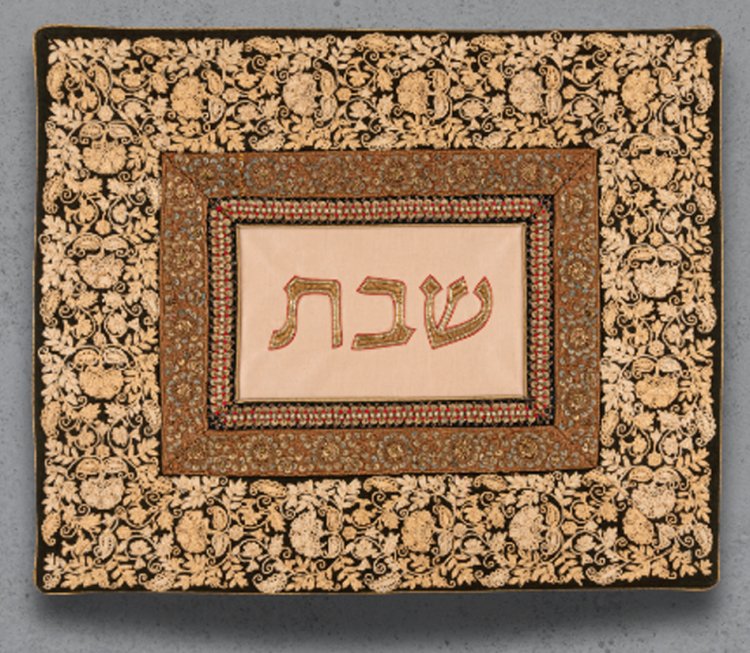
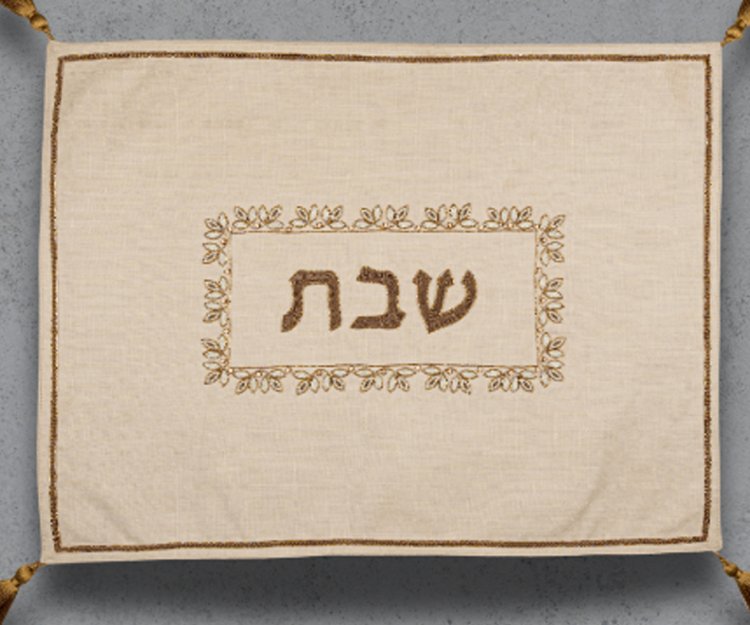
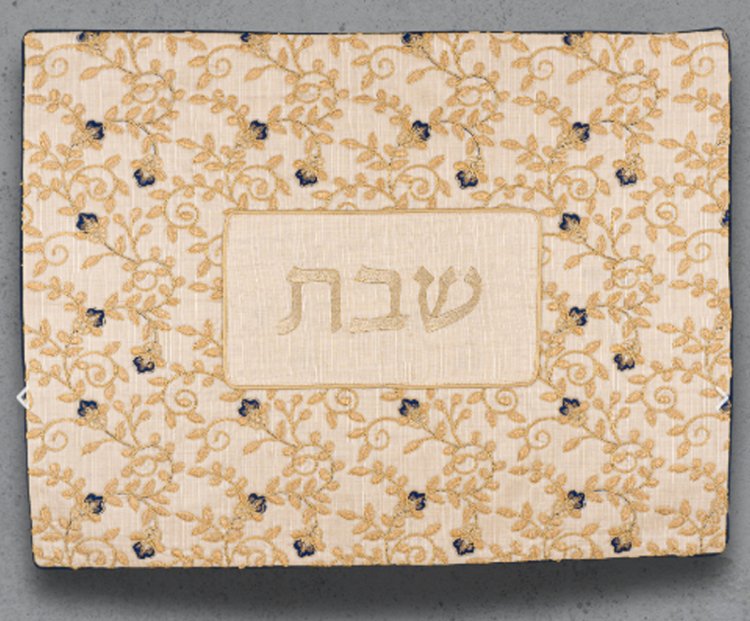
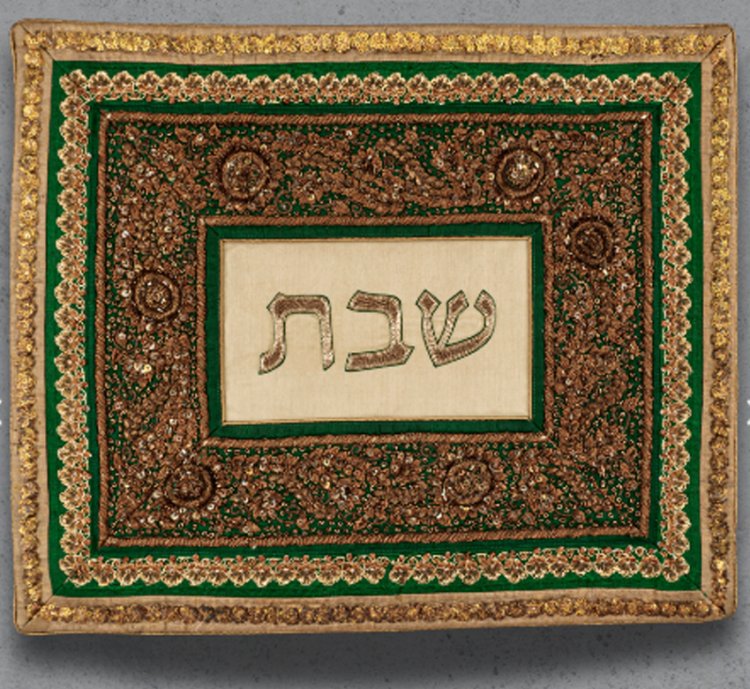
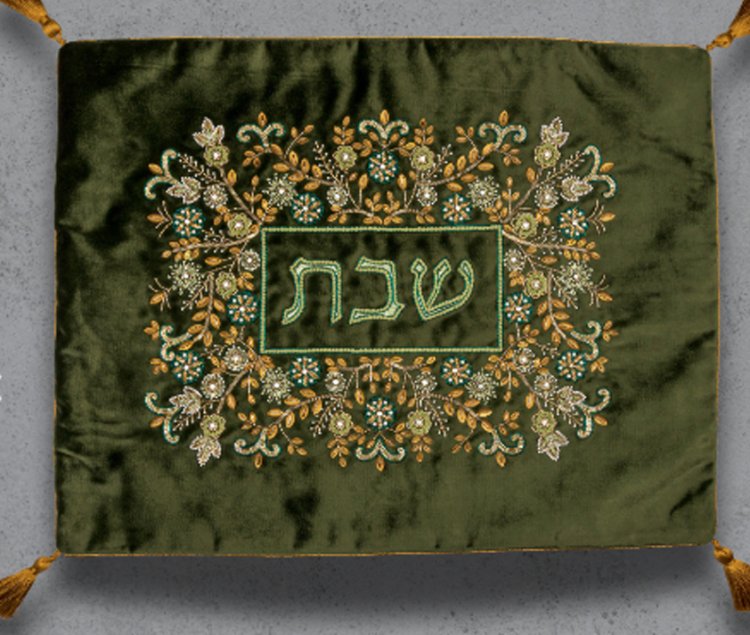
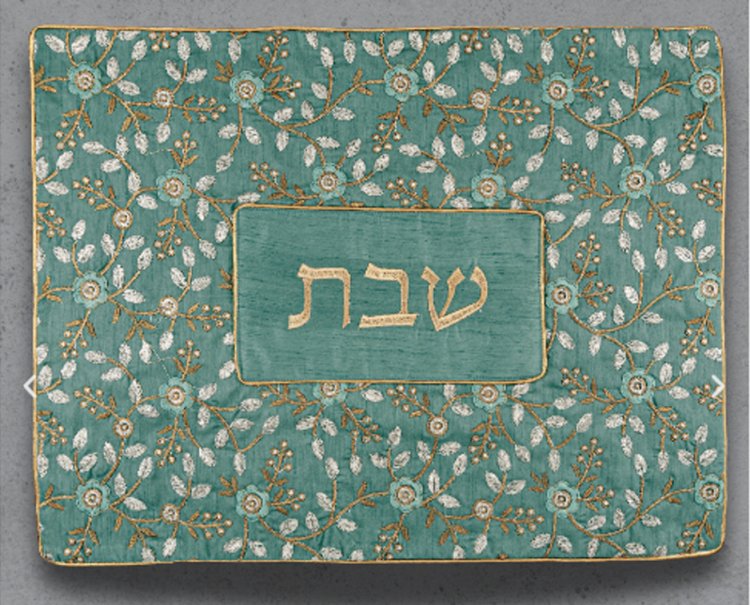
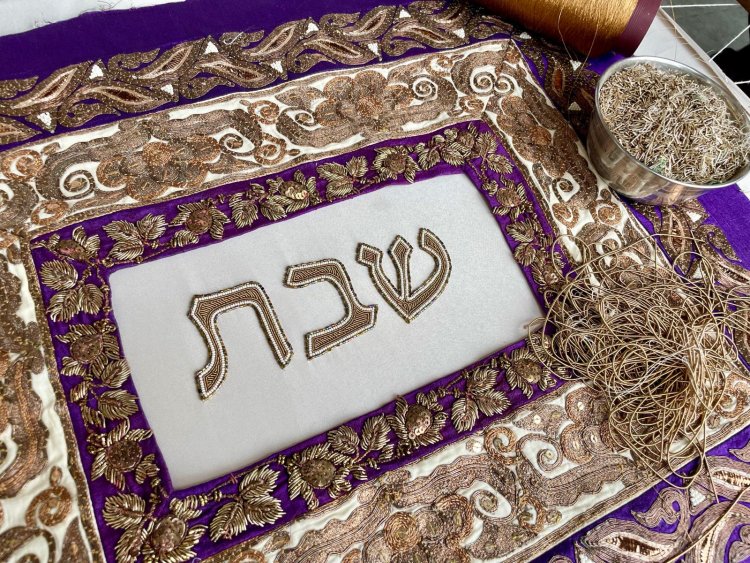
The Jews' Threads
For a long time, Liora traveled monthly to India for making the covers, until she found it hard to handle the travel burden, distances, and demanding production. "Just then, my son David finished three years of military service, and we decided he would join me, and we would work together."
Is he an artist as well?
"David has an artistic sense, but he isn't an artist and doesn't produce the covers himself. Instead, he manages the business and handles the technical side. Thanks to him, I can stay in the artistic bubble, focus my efforts, and strive for exceptional results at the highest level."
According to Liora, the work is demanding, and sometimes they fly for weeks in India. "We carefully choose every thread and fabric shade, spending hours in front of 200 shades of gold threads, carefully combining them. But when we see the reactions of people buying the covers and their admiration, we realize the effort is worthwhile, and it gives us the strength to continue."
Throughout their journey, they encounter many touching stories. "A woman approached me, saying she didn't believe in Shabbat dinners but connected with this art and wanted to buy a cover. So she bought a challah cover and has been blessing it every week since."
"Another person told us she used to never invest in setting the Shabbat table due to fatigue and time constraints. But since receiving such a cover as a gift, she felt it couldn't be that the cover is so gorgeous and the table set simply. So she also bought an elegant set of dishes, cups, and napkins and started investing in the table setting. She sent me photos of the set table, and I was truly moved."
"Incidentally, in the challah cover packages, we make sure to include a bread separation blessing recipe with the prayer and also ensure that ten percent of our profits go to needy families through organizations that focus on Shabbat donations, so they can also enhance their Shabbat."
In conclusion, Liora shares a particularly touching story: "In our family, there's a wedding dress passed down from one of the grandmothers, with us for many years. It belonged to a grandmother who fled Persia for India, and when anti-Jewish decrees began, she continued to Israel, taking the wedding dress with her. We always knew the dress was uniquely designed with delicate artistic embroidery. When we started producing challah covers in India, I noticed the threads reminded me of the embroidery style on my grandmother's dress. Upon investigation, I learned that the method came from Persia, from Jews engaged in embroidery who taught it to the Indians."
"I couldn't resist; when I returned to Israel, I went to the ‘We Museum,’ to which we donated the dress, to see it up close. I felt chills all over. It has been a hundred years since those embroideries were made on the dress, yet the embroidery style and threads are precisely the same. How fitting that the style that characterized Jewish brides would ultimately adorn the Shabbat table of the Shabbat Queen."

